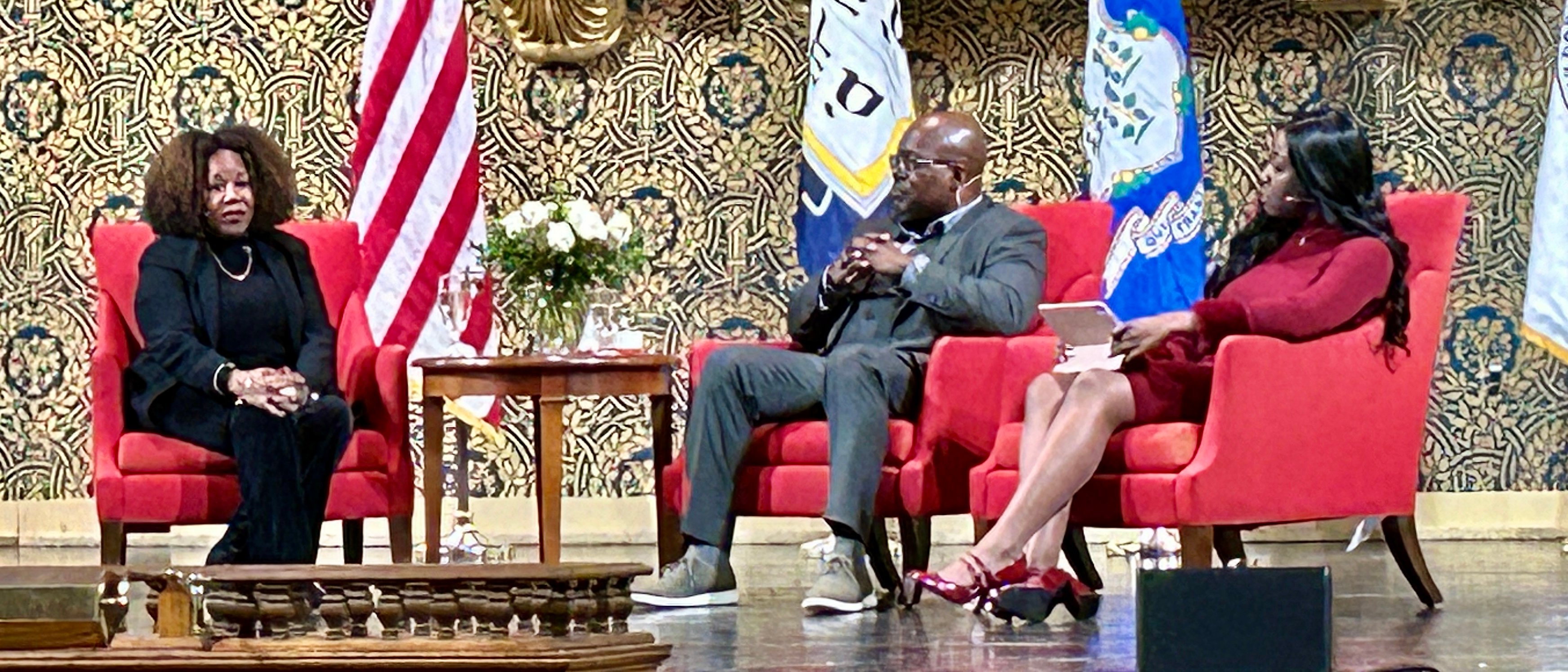
Civil rights icon Ruby Bridges with William Johnson, director of educational strategy for the William Caspar Graustein Memorial Fund, and Yale senior, Stephanie Owusu, at the 2024 Yale MLK Commemoration event. Lisa Reisman Photos.
Waiting near the front of a Woolsey Hall packed with Yale students, faculty, and New Haven community members, Diane X. Brown could barely contain her excitement.
Ruby Bridges, the daughter of sharecroppers and the first Black student to integrate an all-white elementary school in New Orleans, then a tiny girl in a starched dress who would go on to be immortalized in a Norman Rockwell painting, was in the building.
Bridges was the featured speaker for the Yale University 2024 MLK Commemoration event. In the weeks leading up to the event, Brown, who’s branch librarian at Stetson Library, collaborated with Risë Nelson, chair of the MLK Commemoration event planning committee, on a city-wide series of “Ruby Bridges Storytime” events.
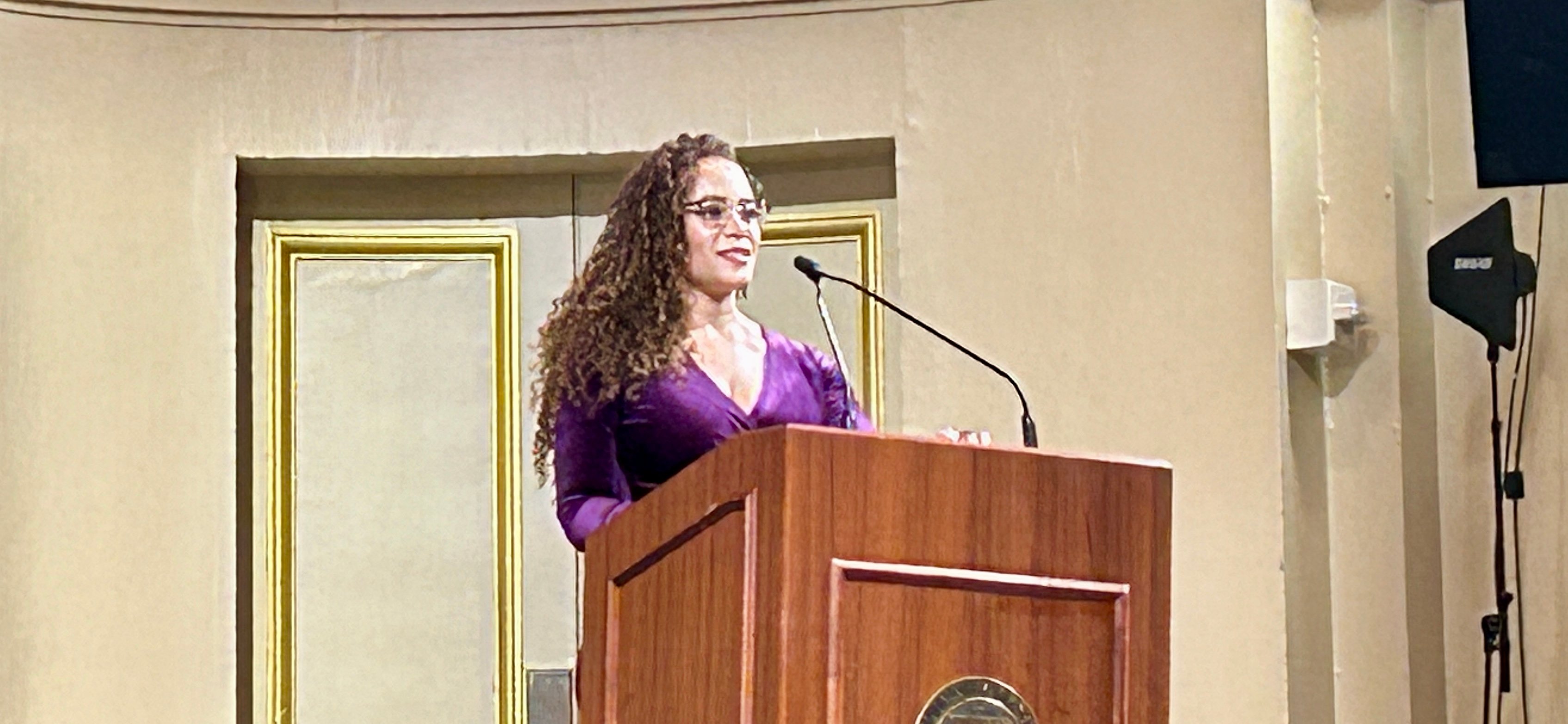
2024 MLK commemoration event chair Risë Nelson.
In introducing Bridges, Nelson, who is also the inaugural director of diversity, equity, inclusion & accessibility at Yale University Library, noted that the event coincided with the 70th anniversary of the 1954 decision Brown v. Board of Education, which struck down segregation in the nation’s public schools.
Nelson dedicated the evening to “our children and our educators,” and acknowledged Bridges’ contributions to “advancing educational justice.”
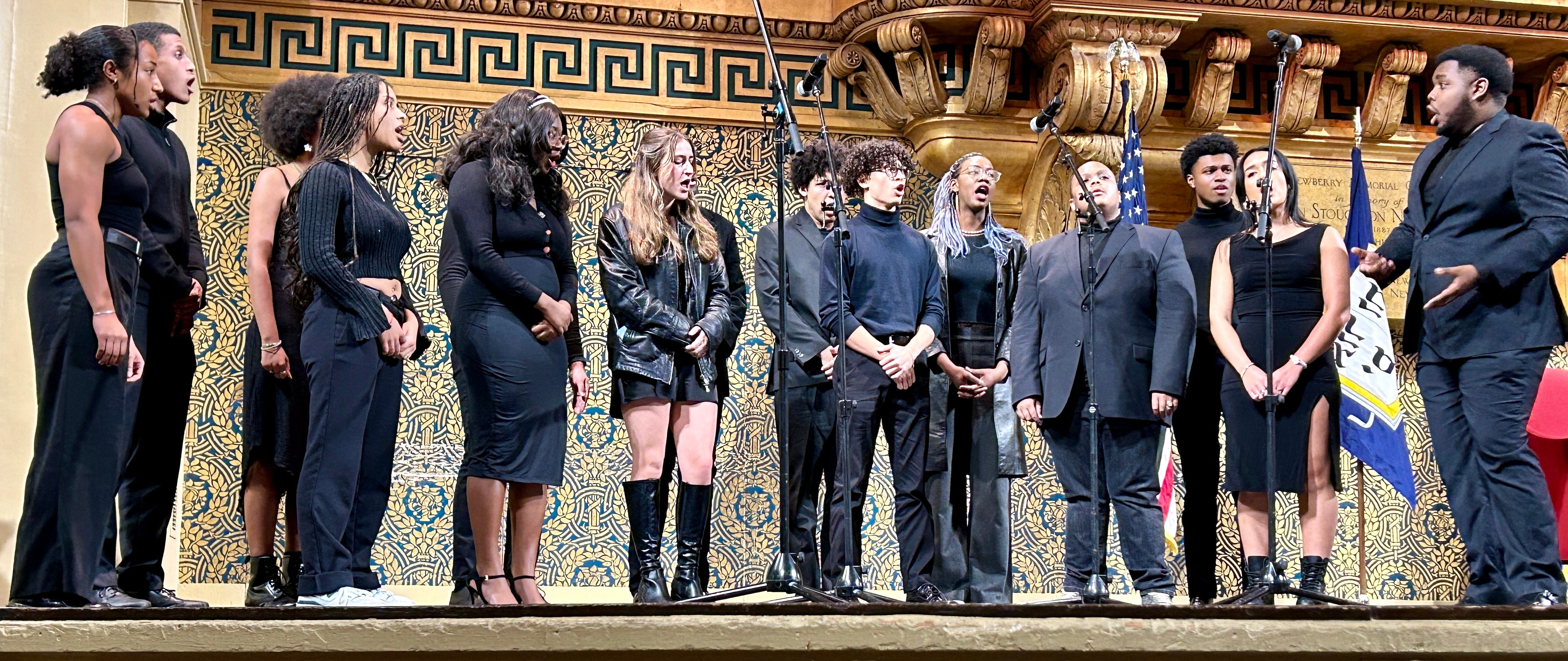
Yale a cappella group Shades of Yale perform at the commemoration.
After the a cappella group Shades of Yale performed a rousing gospel rendition of “Amen/We Shall Overcome,” Bridges, a petite 69-year-old, took the stage, joining moderator Stephanie Owusu, a Yale senior, and William Johnson, director of educational strategy for the William Caspar Graustein Memorial Fund.
Recounting the morning of Nov. 14, 1960, Bridges reminded the audience she was just six at the time. Her parents had experienced racism, but never talked with her about it, and only told her she was going to a new school and she should behave.
“I want you to understand,” she said as her even, steady, voice echoed through the hall, “what protected me was the innocence of a child.”
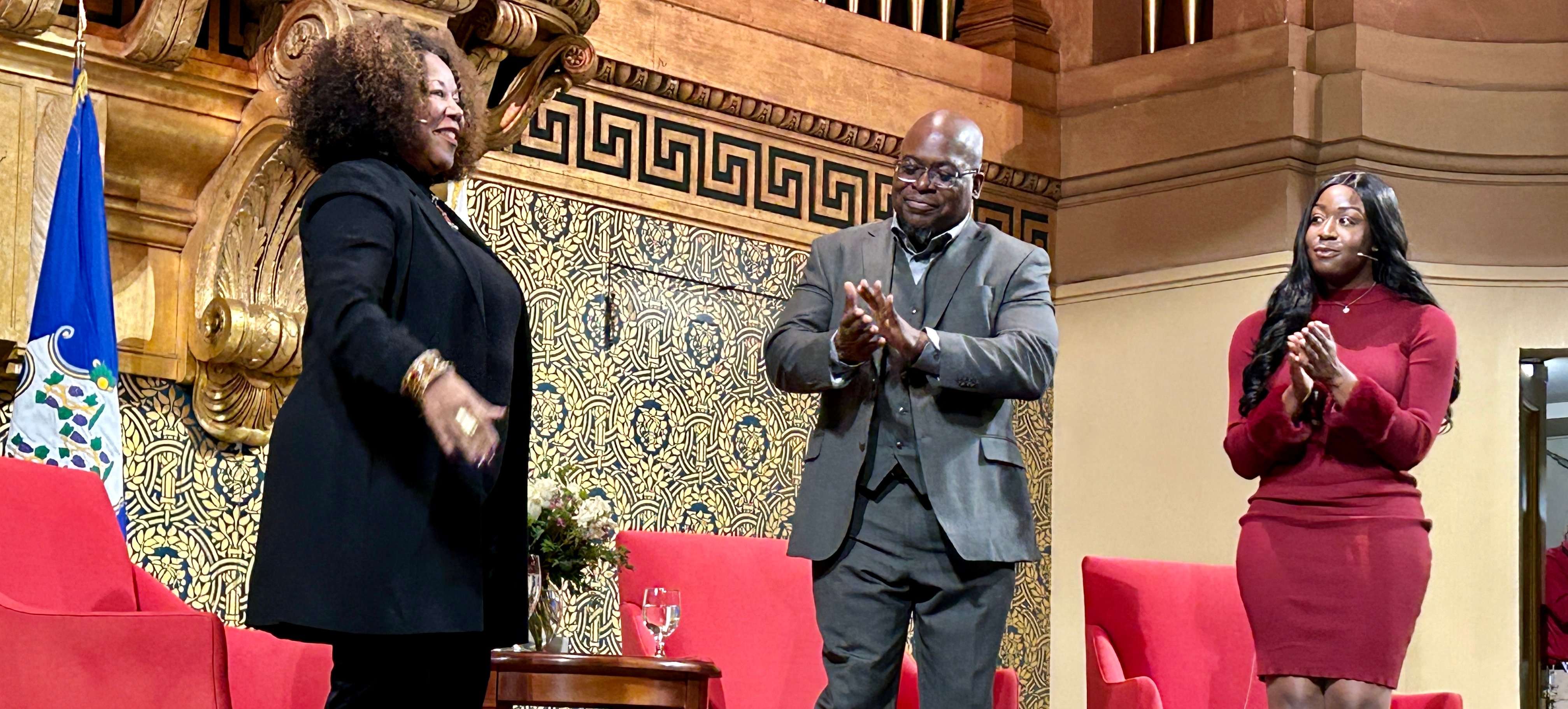 The “mob of people, screaming, yelling, throwing things,” were, in her child's mind, part of a Mardi Gras parade. And her teacher, though she looked like “all those white people outside who seemed upset about something,” she said, “made school fun for me, cared about me, showed me her heart.
The “mob of people, screaming, yelling, throwing things,” were, in her child's mind, part of a Mardi Gras parade. And her teacher, though she looked like “all those white people outside who seemed upset about something,” she said, “made school fun for me, cared about me, showed me her heart.
“A white woman taught me the exact same message that Dr. King died trying to teach us,” she said. “You should look at a person and judge them not by the color of their skin, but by the content of their character. I knew that at six years old.”
Bridges recalled the day on the playground when a white boy told her he couldn’t play with her because his mother said he couldn’t play with a Black girl.
“That was my first introduction to racism and it didn’t come from him,” she said. “It came from his mother.”
Therein lies the lesson, she said.
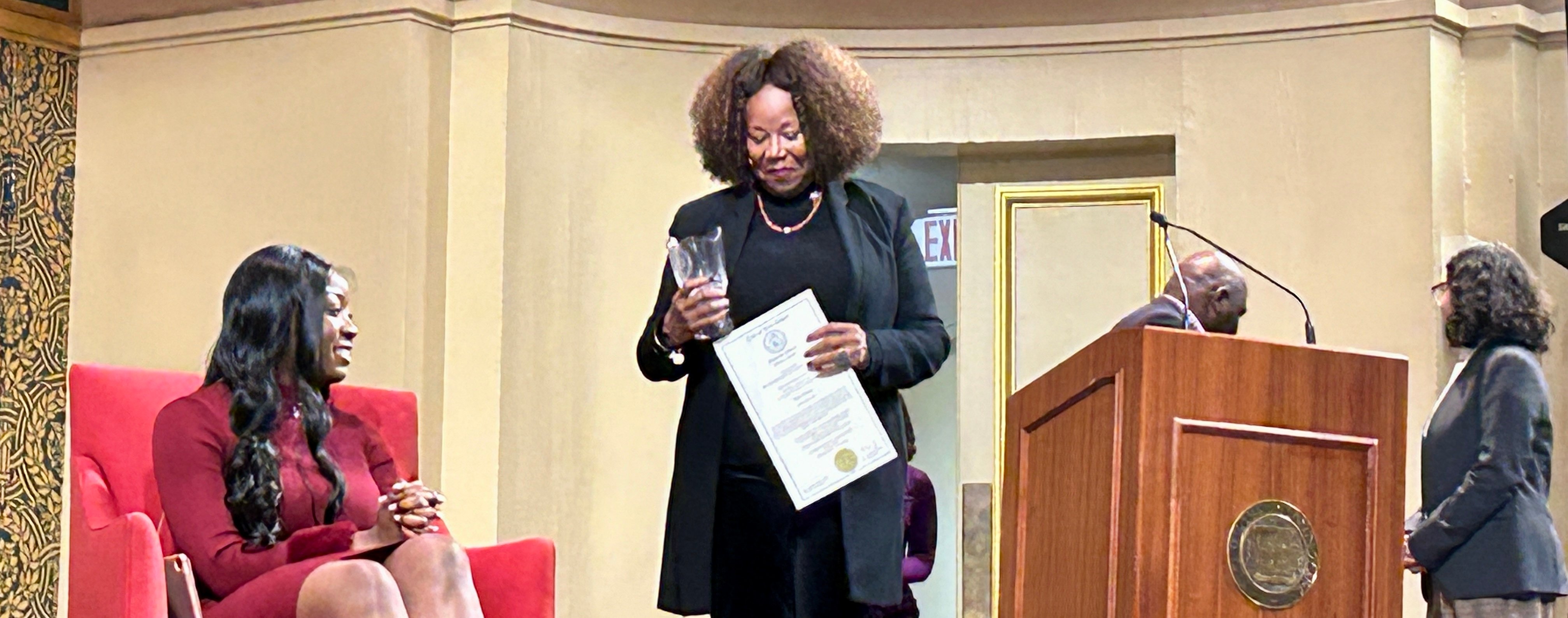 “None of our babies come into the world knowing anything about disliking the baby lying next to them because of the color of their skin,” she said. “What we see playing out before us today comes from us. We take racism and we pass it on to our kids and we rob them of their innocence.”
“None of our babies come into the world knowing anything about disliking the baby lying next to them because of the color of their skin,” she said. “What we see playing out before us today comes from us. We take racism and we pass it on to our kids and we rob them of their innocence.”
There is, she said, “an ‘us’ and a ‘them,’ but it’s a contest between good and evil, not ethnicities or skin colors.”
She spoke about her son who was murdered in New Orleans in 2005 “by someone that looked like him.”
“It was evil cloaked as a brother, and that is what we see playing out on a daily basis all across the country,” she said. “We still think this fight is about the color of our skin and that is very unfortunate.”
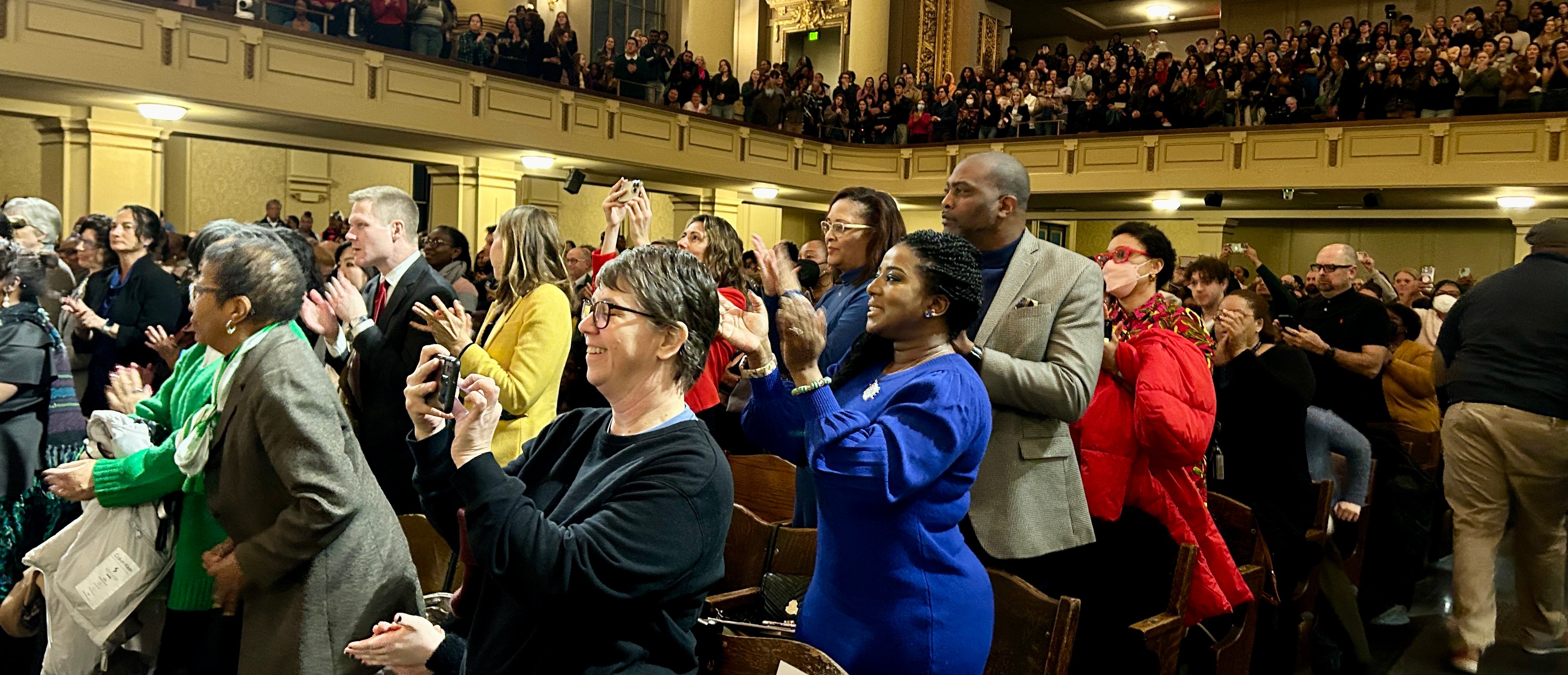
Attendees packed Woolsey Hall to hear civil rights icon Ruby Bridges.
“Take the side of good,” she exhorted. “It is time to understand the lessons that Ruby Bridges went to school to learn.”
“It was dynamic,” said Brown after the event. “Her vulnerability was admirable. Her words were heartfelt. This was everything.”